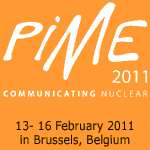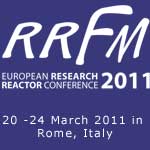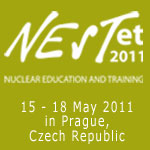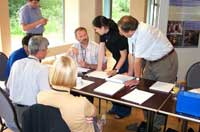
|
|
|
2.1 Guidance for young researchers in the preparation of their thesis
SCK•CEN offers students the possibility to carry out their research work in its laboratories.
On a regular basis, final-year Bachelor or Masters level students visit SCK•CEN and are given guidance on their thesis by our researchers. In a conscious effort to increase its pool of highly specialised young researchers, and to enhance its cooperation with universities, SCK•CEN embarked, in 1992, on a bold programme to support about 10 PhD candidates or post-doctoral researchers every year. These early-stage researchers are recruited for the research areas that reflect the institute’s priority programmes and main R&D areas.
2.2 Coordination and organisation of training and education programmes
Our courses are designed for the nuclear, medical and the non-nuclear industries, national and international policy-making organisations, academia and the general public. E&T programmes are also organised in cooperation with universities, technical universities, nuclear power plants and public and private healthcare service providers. In addition, SCK•CEN is involved in international research networks and training programmes, i.e. of the European Commission and the IAEA.
SCK•CEN provides courses on a wide range of nuclear topics covered by the Centre's research programmes. The main topics include:
-
Radiation protection
-
Nuclear engineering
-
Nuclear materials issues
-
Emergency planning
-
Waste and disposal
-
Decommissioning and dismantling
-
Radiation biology and ecology
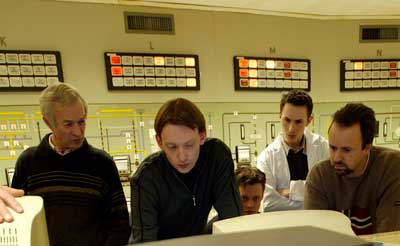
Fig 1. Training of reactor pilots at SCK•CEN
|
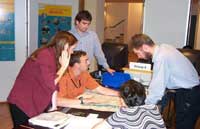 |
Fig 2. Nuclear emergency management course
Approach
Except in the case of academic collaborative projects, all course programmes are tailored to meet the needs of the trainees and are available to fit into a larger modular programme.
The courses can be taught at the premises of the customer or at SCK•CEN's Conference Centre, which offers fully-equipped lecture rooms. The Conference Centre is located next to the SCK•CEN’s technical complex, allowing easy access for the practical training sessions. Several laboratories and installations are available for research carried out by national and foreign students.

Fig 3. SCK•CEN's Conference Centre
The team of lecturers includes engineers, physicists, technicians, biologists, occupational physicians and social scientists. They all bring to the course programmes the individual insight and ideas that reflect their specific background. As SCK•CEN staff members they have acquired sound knowledge and experience in their given field and can, therefore, directly apply their theoretical knowledge and practical experience to the benefit of the various courses.
In December 2010, SCK•CEN obtained the “QFOR” quality label for its nuclear courses.
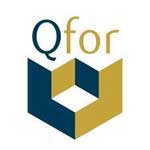
2.3 Policy support with regards to applied education and training on a national and international level
Through networking and participation in international programmes, SCK•CEN aims to contribute to the better harmonisation of training methods and skills recognition on both a national and international level. Within this framework, specific issues of interest to SCK•CEN include standard requirements for course programmes and educational materials, the development of trans-disciplinary training programmes, e-learning and distance learning, the link between radiation safety and conventional safety, the organisation of experience feedback, international exchange of knowledge and experience and the sharing of lecturers, training facilities and educational materials. These are the topics covered by European networks such as EUTERP (European Training and Education in Radiation Protection Foundation) and ENETRAP (European Network for Education and Training in Radiation Protection), in which SCK•CEN plays a prominent role. Other FP7 projects, like TRASNUSAFE, ENEN III, ECNET and ENEN-RU - in which SCK•CEN is an active partner - also share the same goals with regards to harmonisation and facilitating trans-border employee mobility.
2.4 Research into the trans-disciplinary aspects of education and training
Understanding the benefits and risks of radioactivity requires not only technical knowledge and training, but also an insight into a particular context and a feeling for the social and philosophical aspects of that context. In coordination with the academic sector, the research carried out at SCK•CEN's International School for Radiological Protection (ISRP) focuses on how to integrate this trans-disciplinary approach in education and training programmes for both professionals and students/trainees.
3. Contact
More information on the education and training activities of SCK•CEN can be found on at: www.sckcen.be, or by contacting Dr. Michèle Coeck, Education and Training Coordinator, Boeretang 200, BE-2400 Mol, Belgium, tel. + 32 14 33 21 80, mcoeck@sckcen.be.
